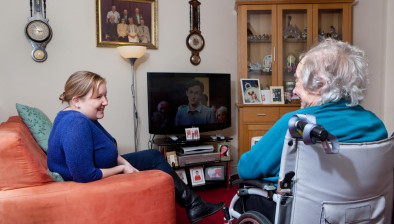Co-design and National Care Service Plan ‘could have negative impact on care services’

Heather Holbrook
Professionals in the elderly care sector and local councils could have key decisions taken away from them under the Scottish Government’s recent proposals on Co-design and National Care Service Plan, according to construction and property consultant Thomas & Adamson.
The company has managed the projects of at least 13 care homes across Scotland mainly in Edinburgh and the West and has a keen insight into the current challenges facing the property and construction industry.
In its response to the proposals, Heather Holbrook, director at Thomas & Adamson, has warned that they will negatively impact what is on offer for residents and staff.
Ms Holbrook said: “The Scottish Government recently launched their ‘Co-design and the National Care Service plan’ part of the new National Care Service Bill and while we welcome many aspects of the new legislation, we remain concerned about increased costs and bureaucracy for a construction industry already hit by rising costs of material, fuel and skills shortages due to the impact of Brexit, Covid and the Russia/Ukraine conflict. Alongside this, care companies are currently battling an ongoing staffing crisis and rising utility costs.
“We know the crucial role the built environment plays in providing the practical base to allow health and care services to place the welfare and safety needs of the individual and their staff above all else. Our clients across public and private elderly care services alike are expressing increasing anxiety about taking autonomy away from design professionals and local councils and placing it in the hands of new care boards answerable to the Scottish Government rather than their local decision makers, who arguably have a better picture of the needs in their local communities.
“Care services should be provided in settings that reflect and support the needs of residents and staff. And while we support the notion of ending a so called ‘postcode lottery’ of care across the country by introducing more effective, collaborative systems of care provision. We do not think an increasingly prescriptive list of national standards is the answer. The care plan and associated Design Code place costly burdens on new build/refurbishment projects, which do not improve the lives of residents but rather offer unnecessary design solutions for problems that do not exist.
“This lack of understanding of the key challenges facing the built environment in elderly care provision is borne out of a complete lack of consultation with the property and construction industries.
“We hope there is still time to influence these new regulations proposed under the bill but fear it is a fait accompli.”








